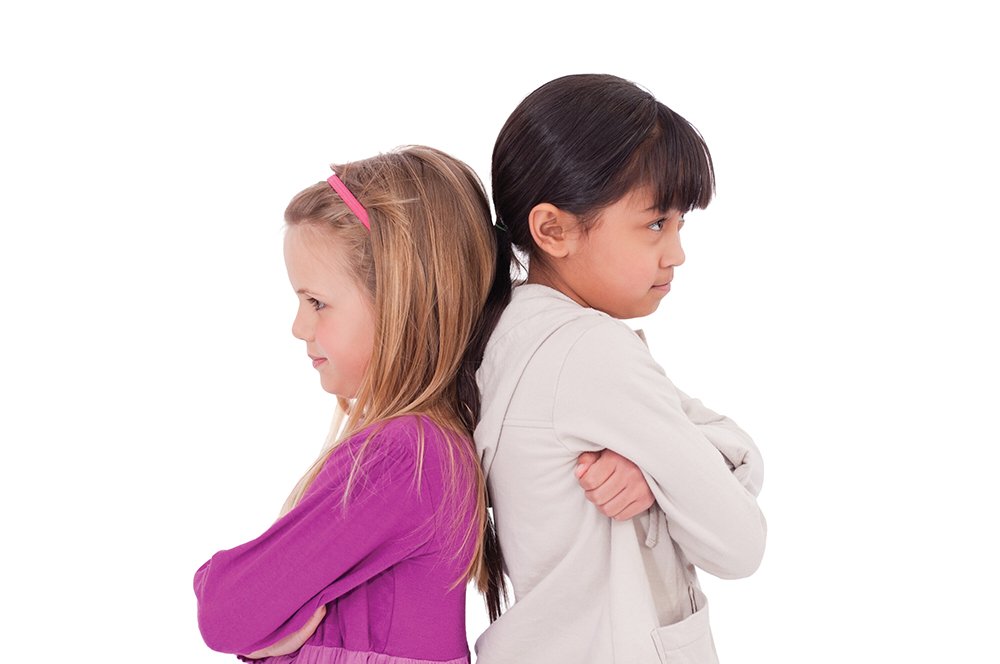Camp Administration 101: Managing Camper Conflict
Develop a process that is fair and can handle any scenario
By Jason Schaitz
Regardless of how much time is spent acclimating kids to life at camp, there will almost always be incidents of kids not getting along. Examples can range from minor name-calling to severe bullying, fighting, or inappropriate language.
© Can Stock Photo / 4774344sean
Although there will be some commonalities, each incident should be handled with a process that is fair. Here are some tips on handling conflict between campers:
© Can Stock Photo / JamieWilson
Separate the kids and listen to both sides. This is important, regardless of a camper’s history or what other campers relate. All kids deserve to be heard and tell their side of the story. Often, the truth lies somewhere between each party’s recollection.
Talk to counselors and any witnesses individually. Hopefully, a counselor saw or heard something that will make the process easier. Sometimes, with so many kids in an area, this is not always possible, even with the best supervision. In these cases, find out what kids around the conflicting pair saw to hopefully get unbiased sides.
Bring the parties together to discuss the conflict. Discuss the incident with both kids, and if someone is at fault, make sure he or she apologizes to the other camper. Many times both campers have played a part in the incident, so apologies from both and a handshake go a long way.
Reiterate the camp rules and discuss how to move forward. Give concise expectations of the camp rules and set guidelines, especially if the campers cannot get along. Make sure they are aware of the repercussions for a second incident. Also, inform the counselors so they can monitor the kids closely to avoid another clash.
Discipline the campers if necessary, and report the incident to parents. Make sure the punishment is fair based on the circumstances and available information. Whether you discipline or not, always document and report the incident to parents so, if something happens again, there are no surprises.
To prevent conflict between campers, try these tactics:
Use icebreakers and teambuilding activities regularly. At the very least, start off the week with these activities; if possible, incorporate them daily to make group comradery even better.
When coordinating activities, have campers group or pair up with different kids each time. This allows them to interact and connect with more kids than they might normally do.
Review camp rules regularly and set clear expectations. Do this with campers just as you would with staff members. Regardless of whether the same kids remain at camp all summer or a different group shows up each week, a review of the rules at the beginning of each week is important. Let campers know there is a process in place for discipline that may cause them to miss activities if they cannot behave.
Use engaging and educational activities that promote social and emotional skills. Talk to campers about how they are supposed to act, and follow up on how they feel if someone does not treat them well.
Look out for bullying. Calling names, putting hands on each other, not including individuals in activities, starting rumors, etc. should be shut down immediately before the behavior escalates. Sometimes the more passive-aggressive type of psychological bullying can be hard to identify, so keep an eye on campers’ behaviors in order to get ahead of this.
© Can Stock Photo / davit85
Focus on inclusion. Make sure all kids feel welcome and are participating. Even if they don’t enjoy a certain type of activity, find an alternative or something within that activity or area so they can feel included. If several campers frequently choose not to participate, it may mean the group is having issues with inclusion.
Keep the mood light and fun. Campers want to feel like you are one of them. Being too strict, yelling all the time, and not connecting with campers will cause them to check out and not listen, or misbehave. There may be a time when you have no choice but to raise your voice or discipline someone, but if it is a daily occurrence, then it’s time to step back and evaluate your own behavior.
Not all kids are going to be best friends, but they do need to get along. Regardless of the severity of an incident, doing your due diligence, documenting, communicating, and setting expectations for both the campers and parents will help resolve conflicts and prevent repeat incidents.
Jason Schaitz is a Parks and Recreation Director with 15 years’ experience managing camps and recreation programs. He also created and manages www.thesummercampsource.com with the goal of providing free resources for any type of camp, afterschool, or childcare program. Take your camp to the next level by visiting The Summer Camp Source and check out the Camp App, Camp Resources, Camp News, and Camp Administration 101 educational series.



